People in Tunisia protest against upcoming referendum on new constitution, slam it as ‘illegal’
Hundreds of people in the Tunisian capital, Tunis, have rallied against an upcoming referendum on a new constitution, denouncing the move as “illegal.”
On Saturday, hundreds of protesters convened on Habib Bourguiba Avenue in central Tunis to protest against a referendum due to be held on Monday on a new constitution that they rejected as illegal, while the rally was surrounded by a heavy police presence with water cannons and riot gear.
Last month, Tunisian President Kais Saied, a former law professor, published the draft constitution, granting himself far more powers, limiting the role of the parliament and judiciary, and lifting most checks on his power.
The draft constitution will turn the president into an omnipotent figure, without any institutional checks and balances, while also weakening the judiciary and constraining other branches of the state. It further allows the president to serve two five-year terms, which could be extended in the event of an undefined “imminent danger.”
“Shut down the coup!”, “Stop autocratic rule!” shouted the protesters on Habib Bourguiba Avenue, the main street in central Tunis.
“The Tunisian people will deal a major blow to Saied on the day of the illegal referendum and will prove to him that it is not interested in his populist path,” said Nejib Chebbi, the head of an anti-referendum coalition.
Police reportedly arrested an unspecified number of protesters.
The protest rally on Saturday was organized by the coalition, which includes the activist group Citizens Against the Coup and Ennahda, an Islamist party that was the largest in the dissolved parliament.
In recent weeks, the Tunisian people have held huge demonstrations across the country in a public display of opposition to the proposed constitution.
Earlier this year, he had said that he would form a committee to rewrite the constitution, put it to a referendum in July, and hold parliamentary elections in December.
Critics say Saied has moved Tunisia, which faces a grinding economic crisis, down a dangerous path back toward autocracy.
The so-called referendum, which swiftly raised an outcry among elites, is the latest move in what Saied’s opponents brand as a march to one-man rule.
In July last year and after violent rallies against the government demanding the improvement of basic services, Saied suspended the parliament, known as the Assembly of Representatives, for a month and relieved the prime minister of his duties, waived the immunity of lawmakers, and ordered the military to close the parliament house.
The president later extended the suspension of the parliament until a new election takes place. In September, he announced that he would rule by decree, ignoring parts of the constitution. In February this year, he also dissolved the Supreme Judicial Council, a top independent judicial watchdog.
In late March, Saied even dissolved the parliament hours after more than half members of the suspended parliament held a plenary session online and voted through a bill against Saied’s “exceptional measures,” although he had dismissed their meeting as illegal.
Opponents accused him of launching a coup and attempting to assume near-total power.
Tunisia's budget deficit will expand to 9.7 percent of GDP this year, in comparison to a previously expected 6.7 percent, due to a stronger US dollar and a sharp rise in grain and energy prices, the central bank governor, Marouan Abassi, said in June.
Journalist Tucker Carlson says he was detained in occupied territories after interview with US amb.
VIDEO | Is there any hope for Russia-Germany relations?
VIDEO | Israeli land grab policies
Nuclear chief: Israeli infiltration, sabotage drove Iran towards nuclear self-sufficiency
IRGC intel. chief: Enemies devised 7-stage plot for recent riots
Israeli minister calls to 'encourage' Palestinian exodus
VIDEO | Press TV's news headlines
VIDEO | Near breakdown: Generators in Gaza’s main hospitals


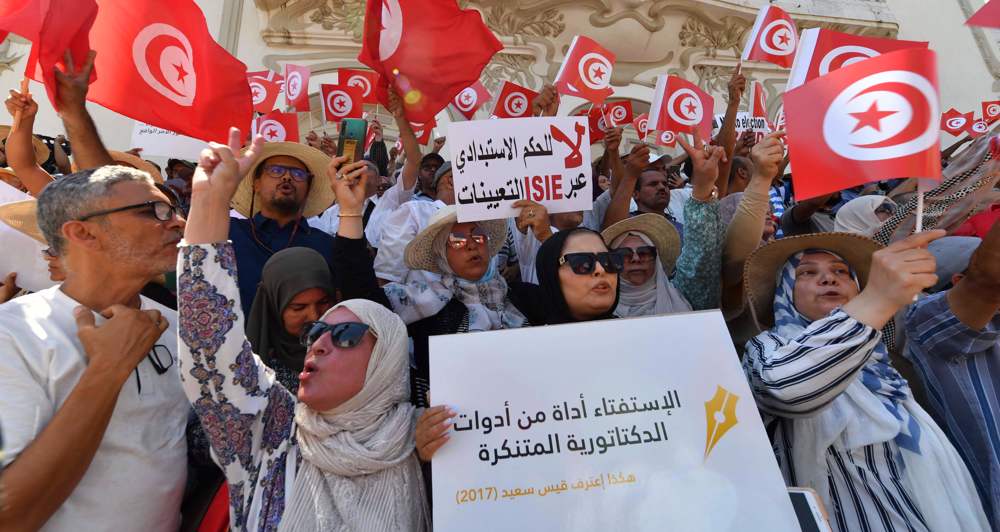
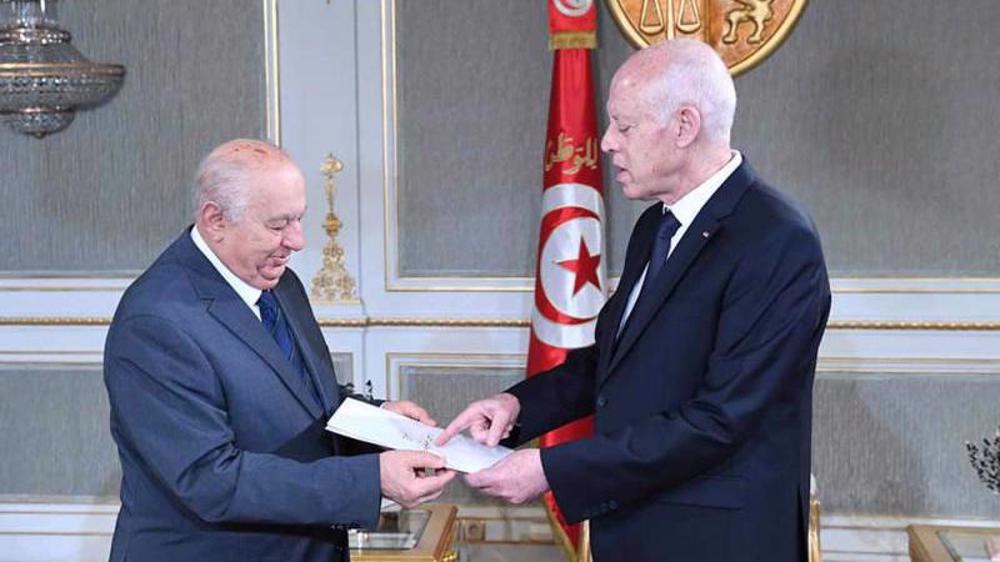
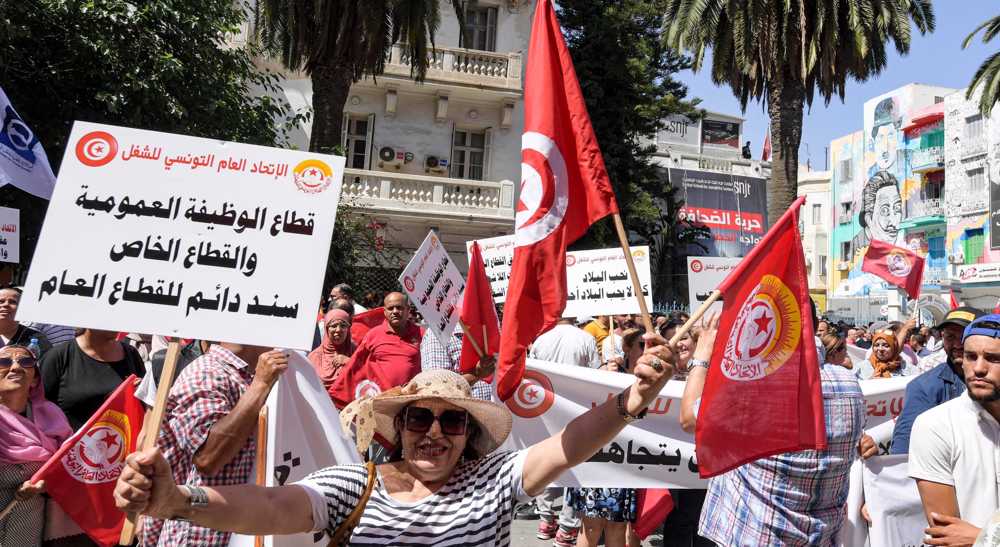

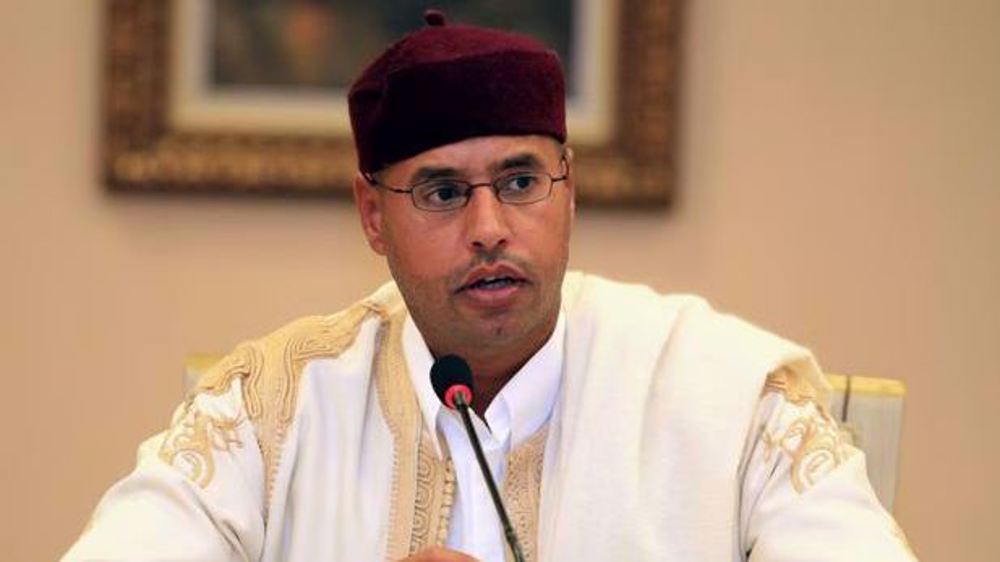
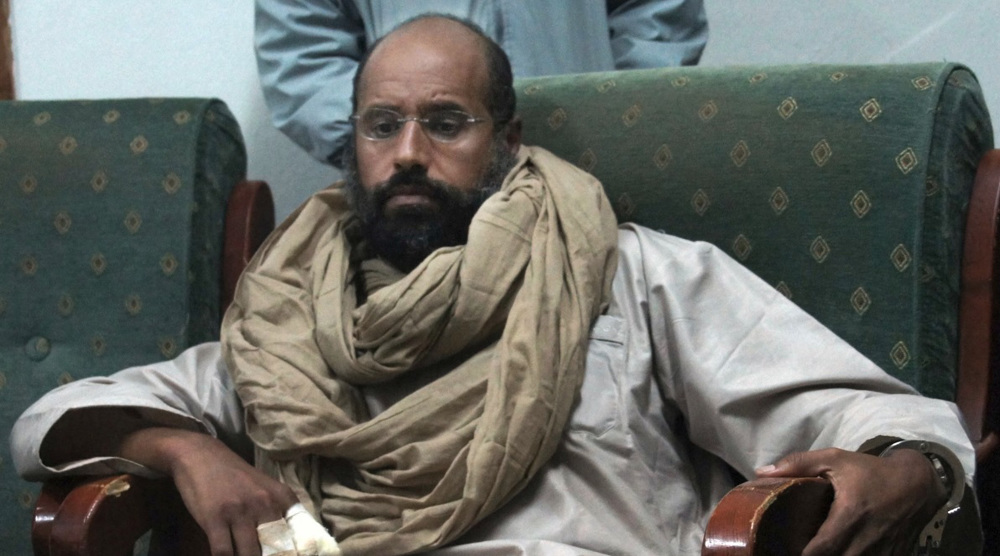



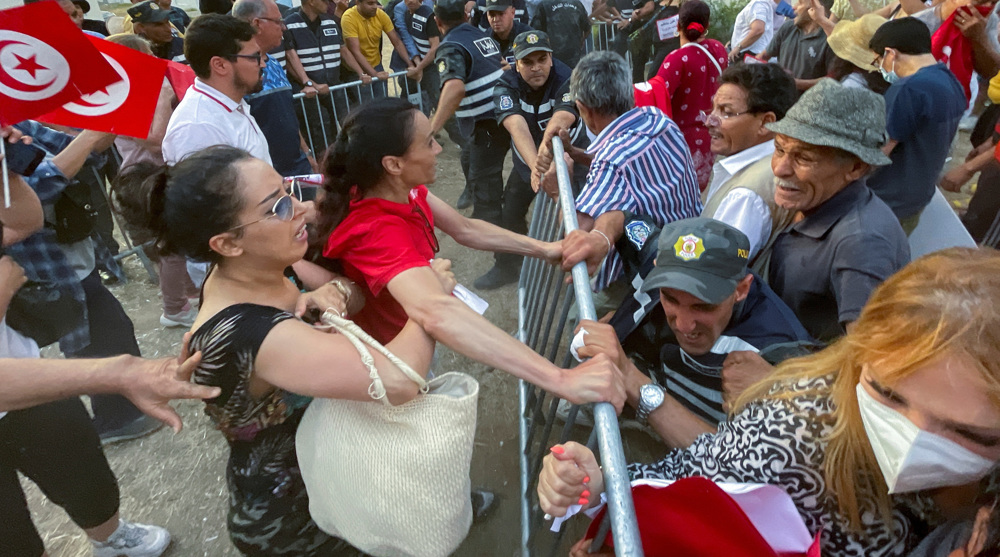
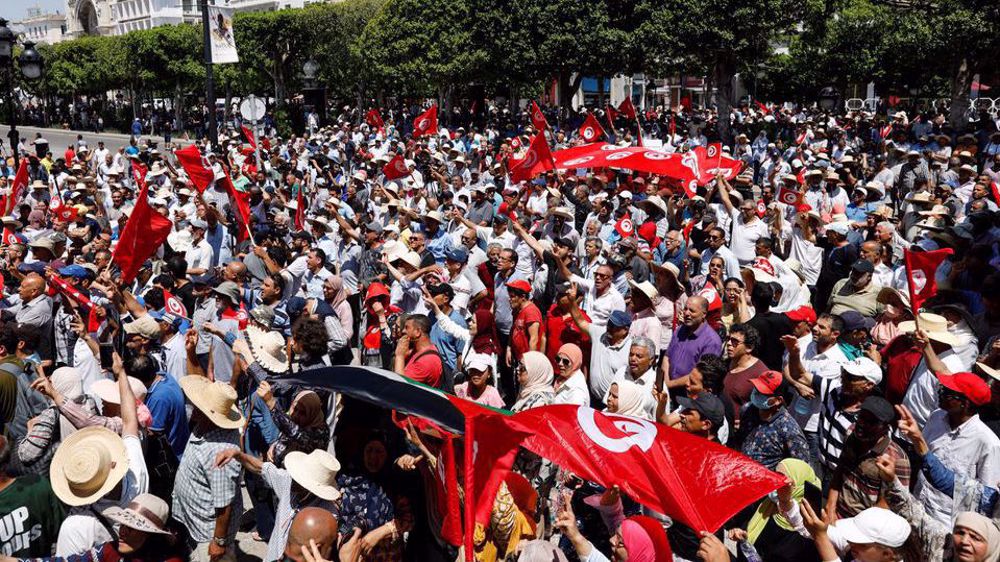

 This makes it easy to access the Press TV website
This makes it easy to access the Press TV website